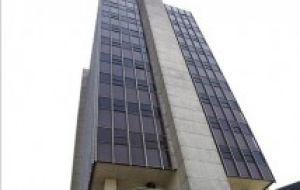MercoPress. South Atlantic News Agency
Brazil central bank expected to keep interest rates low for a ‘prolonged period’
 “Prospective scenario for inflation presents favourable signs”, said the Central bank minutes
“Prospective scenario for inflation presents favourable signs”, said the Central bank minutes The Brazilian central bank indicated it will keep interest rates at their current level for an extended period given favourable signs for the inflation outlook.
The rate-setting committee “assesses that the prospective scenario for inflation presents favourable signs and reaffirms its vision that inflation accumulated over 12 months is tending to converge toward the target (4.5%), though in a non-linear fashion,” the bank said in the minutes to its November 27-28 meeting published on Thursday.
The bank’s board, led by President Alexandre Tombini, voted unanimously last week to keep the benchmark Selic rate at a record low 7.25%, marking the end of the biggest easing cycle in Brazil.
The board, in a statement accompanying its Nov. 28 decision, pledged to keep monetary conditions stable for a “prolonged period” as the global economy remains adverse and domestic activity struggles to recover. Since August 2011, the Brazil central bank has cut interest rates by 525 basis points as President Dilma Rousseff reduced taxes, pressured commercial banks to lower rates and raised tariffs to help manufacturers.
Brazil’s economy expanded in the third quarter at 0.6%, half the pace forecast by economists, as investment fell for the fifth straight period. As a result, economists in the central bank’s latest survey cut their 2013 growth forecasts to 3.7% from 3.94%. They forecast GDP will expand 1.27% this year, less than the U.S. as well as Russia, India and China.
The government’s measures have set the stage for the economy to grow 4% in 2013, Finance Minister Guido Mantega said in an interview on Dec. 4.
“Lower interest rates, lower taxes and a more competitive exchange rate are the pillars of an economy that will start investing more,” Mantega said in his Brasilia office. “The economy was addicted to high interest rates. It’s an addiction almost like cocaine.”
Mantega also announced on Wednesday a reduction in national development bank BNDES’ long-term lending rate, known as TJLP, to 5% from 5.5% effective in January.
BNDES will also extend for another year by 100 billion Reais (47.9 billion dollars) an emergency credit line established during the 2009 credit freeze to fund the purchase of capital goods. Of the total, up to 15 billion in loans can come from private banks against deposits they’re required to hold at the central bank, he said.




Top Comments
Disclaimer & comment rulesCommenting for this story is now closed.
If you have a Facebook account, become a fan and comment on our Facebook Page!